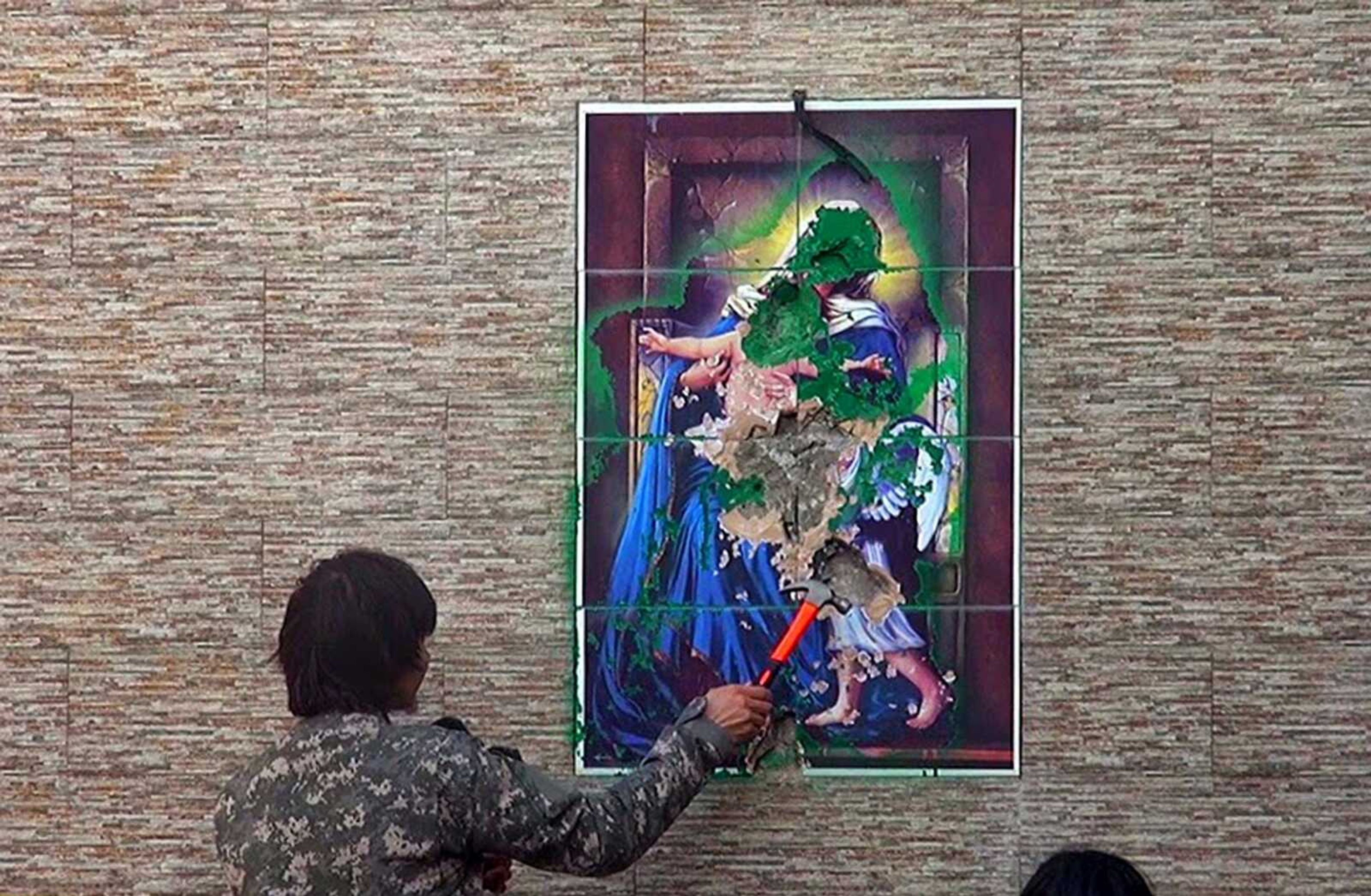Inside Islamic State group's rule: Creating a nation of fear
ESKI MOSUL, Iraq -- When the Islamic State fighters burst into the Iraqi village of Eski Mosul, Sheikh Abdullah Ibrahim knew his wife was in trouble. Buthaina Ibrahim was a human rights advocate who had run for the provincial council in Mosul. The IS fighters demanded she apply for a "repentance card." Under the rule of the extremist group, all former police officers, soldiers and people whose activities are deemed "heretical" must sign the card and carry it with them at all times...
ESKI MOSUL, Iraq -- When the Islamic State fighters burst into the Iraqi village of Eski Mosul, Sheikh Abdullah Ibrahim knew his wife was in trouble.
Buthaina Ibrahim was a human rights advocate who had run for the provincial council in Mosul. The IS fighters demanded she apply for a "repentance card." Under the rule of the extremist group, all former police officers, soldiers and people whose activities are deemed "heretical" must sign the card and carry it with them at all times.
"She said she'd never stoop so low," her husband said.
Buthaina Ibrahim was an outlier in her defiance of the Islamic State. It would cost her.
The "caliphate," declared a year ago, demands obedience. Untold numbers have been killed because they were deemed dangerous to the IS, or insufficiently pious; up to 8 million endure a regime that has turned their world upside down, extending its control into every corner of life to enforce its own radical interpretation of Islamic law, or Shariah.
The Islamic State is a place where men douse themselves with cologne to hide the odor of forbidden cigarettes; where taxi drivers or motorists usually play the IS radio station, because music can get a driver 10 lashes; where women must be covered in black and wearing flat-soled shoes; where shops must close during Muslim prayers, and everyone found outdoors must attend.
There is no safe way out. People vanish -- their disappearance sometimes explained by an uninformative death certificate, or worse, a video of their beheading.
"People hate them, but they've despaired, and they don't see anyone supporting them if they rise up," said a 28-year-old Syrian who asked to be identified only by the nickname he uses in political activism, Adnan, to protect his family, which lives under IS rule. "People feel that nobody is with them."
The Associated Press interviewed more than 20 Iraqis and Syrians describing life under the group's rule. One AP team traveled to Eski Mosul, a village on a bend in the Tigris River north of Mosul where residents emerged from nearly seven months under IS rule after Kurdish fighters drove the extremists out in January. IS forces remain only a few miles away; smoke is visible from fighting on the front lines.
Another AP team went to the Turkish border cities of Gaziantep and Sanliurfa, refuges for Syrians who have fled IS territory.
The picture they paint suggests the Islamic State's "caliphate" has evolved into an entrenched pseudo-state, based on a bureaucracy of terror. Interviewees provided documents produced by the IS ruling machine -- repentance cards, lists inventorying weapons held by locals, leaflets detailing rules of women's dress, forms for applying for permission to travel outside IS territory. All are emblazoned with the IS black banner.
Adnan described the transformation the Syrian city of Raqqa underwent after the Islamic State took it over in January 2014. He fled, but after a few months of missing his family, the 28-year-old returned to see whether he could endure life under the extremists. He lasted almost a year.
The once-cosmopolitan Syrian provincial capital has been transformed, he said. Women covered head to toe in black scurry quickly to markets before rushing home. Families often don't leave home to avoid contact with the "Hisba" committees, the enforcers of IS regulations. IS fighters turned a soccer stadium into a prison and interrogation center known as "Point 11." The city's central square was referred to by residents as "Jaheem" Square -- Hell Square, where Adnan said he saw the corpses of three men left dangling for days as a warning.
Armed members of the Hisba patrolled the streets, cruising in SUVs and wearing Afghan-style baggy pants and long shirts. They sniffed people for the odor of cigarettes, and chastised women they considered improperly covered or men who wore Western clothes or hair styles. Adnan said he once was dealt 10 lashes for playing music in his car.
In this world, the outspoken Buthaina Ibrahim was clearly in danger. The sheikh tried to save his wife, sending her away to safety, but she soon returned, missing their three daughters and two sons, he said. In early October, the militants surrounded the house and dragged her away.
Not long after, Ibrahim received the death certificate. A simple sheet of paper from an "Islamic court" with a judge's signature, it said only that Buthaina's death was verified, nothing more. He has no idea where her body is.
Delivery from IS came to Eski Mosul at the hands of Kurdish fighters. Amid the joy over liberation, many residents discarded documents from the Islamic State.
But Ibrahim is keeping the death certificate as a connection to his wife, "because it has her name on it."
A former soldier in the village, Salim Ahmed, said he is keeping his repentance card. IS might be gone, but the fear it instilled in him is not.
"We live very close to their front line," he said. "One day, they might come back and ask me for my repentance card again."
Connect with the Southeast Missourian Newsroom:
For corrections to this story or other insights for the editor, click here. To submit a letter to the editor, click here. To learn about the Southeast Missourian’s AI Policy, click here.










